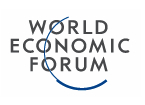Corporate Brand Reputation Outranks Financial Preformance As Most Important Measure Of Success
Published 01-22-04
Submitted by World Economic Forum
The World Economic Forum sent a survey in December to all 1,500 participants to the 34th Annual Meeting currently under way in Davos, Switzerland. About 10% of the participants (132 respondents), whose membership is primarily drawn from the world’s 1,000 leading global companies, responded. This “Voice of the Leaders Survey” was released today by the World Economic Forum and Fleishman-Hillard International Communications. It reveals fresh insights into the issues that concern top business leaders.
“The reputation of a company and its products used to be regarded as an intangible asset that was very hard to quantify,” said John Graham, Fleishman-Hillard’s Chairman and Chief Executive Officer. “Now it is clear that reputation is a vital component of a company’s value and it is becoming a key measure of a company’s performance.”
Three-fifths (59%) of the survey respondents estimated that corporate brand or reputation represents more than 40% of a company’s market capitalization. And more than 77% believe that reputation has become more important over the last two years.
“Clearly, the recent wave of corporate scandals has made CEOs reappraise the importance they attach to their corporate brand,” added Graham. “One of the results of this reappraisal is that business leaders no longer regard traditional financial measures as the ultimate indicator of a company’s success.”
Ninety-two percent of corporate survey respondents (103 leaders) perceive reputation as important to their corporate strategy and 24% rated corporate reputation as the most important measure of success. That answer was followed by profitability (17%), return on investment (13%), sustainability (6%), and stock market performance (5%). Survey respondents named only the quality of products or services (27%) more often than corporate reputation as the leading success measure.
Among the survey’s other findings:
- By a ratio of more than two-to-one, members believe the next generation is more likely to live in a prosperous (59%) rather than safe (27%) world. World leaders appear to be somewhat more pessimistic toward world safety (61% think the world will be less safe for the next generation) than citizens at large (only 48% feel the same).
- While most members (90%) associate either high or moderate risk with the current geopolitical situation, most (82%) are more optimistic now than they were a year ago regarding the global economy.
- Members tend to believe the outlook for their personal security looks better now (65% assign positive ratings) than in ten years’ time (only 41% assign positive ratings).
- Among corporate members, almost two-fifths (38%) rated economics/markets as the leading threat to security and integrity of the corporate brand, suggesting that short-term views may be distorting accurate and efficient valuation of companies.
The survey of leaders’ opinions follows a separate complimentary survey released last week carried out exclusively for the World Economic Forum by Gallup International in advance of the Forum’s Annual Meeting in Davos, Switzerland. The results of the “Voice of the People” survey, were based on almost 43,000 interviews from 51 countries, and represented the views of more than 1.1 billion global citizens. The questions concerned different aspects of prosperity and security.
Among the findings: half of those interviewed (48%) across the world think the next generation will live in a less safe world. In Western Europe this figure rises to almost two-thirds (64%). But in West Asia (Afghanistan, India and Pakistan) – three countries with turbulent backgrounds – people are more optimistic about the next generation and half those questioned feel the world will be a safer place for them. The survey also found that people feel their country’s economic position is worse now than it was ten years ago.
For the full text on BOTH reports and executive surveys, please visit the World Economic Forum’s website at http://www.weforum.org/securitysurvey
Note for editors
About Fleishman-Hillard
One of the world's leading public relations firms, Fleishman-Hillard has built its reputation on using strategic communications to deliver what its clients value most: meaningful, positive and measurable impact on the performance of their organizations. The firm is widely recognized for excellent client service and a strong company culture founded on teamwork, integrity and personal commitment. Based in St Louis, the firm operates throughout North America, Europe, Asia, Latin America, Australia and South Africa through its 83 owned offices. For more information, visit the Fleishman-Hillard Web site at http://www.fleishman.com.
Fleishman-Hillard is a part of Omnicom Group Inc. (NYSE: OMC), a leading global marketing and corporate communications company. Omnicom's branded networks and numerous specialty firms provide advertising, strategic media planning and buying, direct and promotional marketing, public relations and other specialty communications services to over 5,000 clients in more than 100 countries.
Photos of our events can be downloaded free of charge for journalists at
http://www.swiss-image.ch/worldeconomicforum (login required).
About us
http://www.weforum.org/aboutus
The World Economic Forum is the foremost global community of business, political, intellectual and other leaders of society committed to improving the state of the world.
Incorporated as a foundation, and based in Geneva, Switzerland, the World Economic Forum is impartial and not-for-profit; it is tied to no political, partisan or national interests. The Forum has NGO consultative status with the Economic and Social Council of the United Nations.


